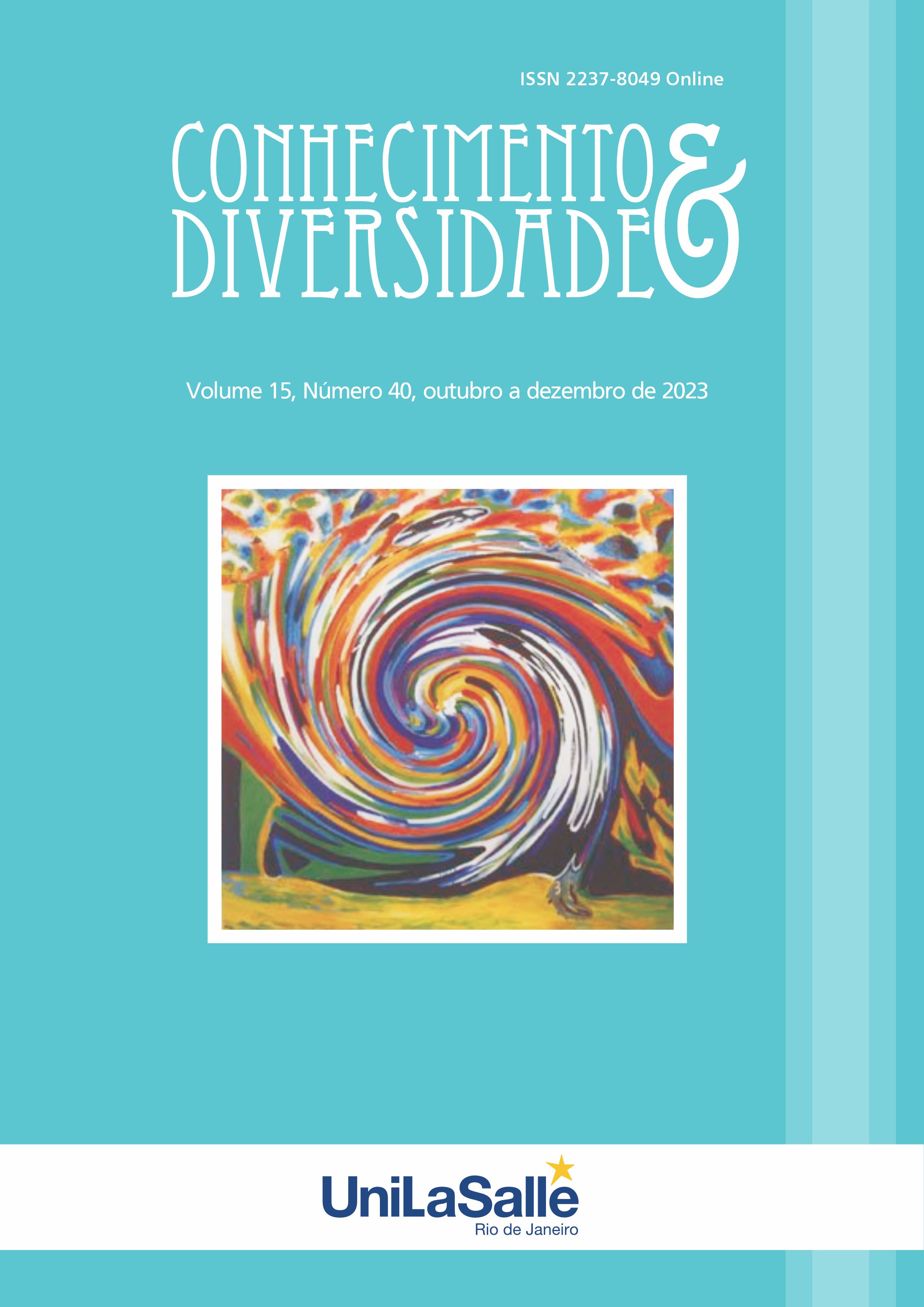UM ESTUDO EDUCACIONAL SOBRE O EFEITO DA ANSIEDADE FUTURA NO PROGRESSO ACADÊMICO DE ESTUDANTES UNIVERSITÁRIOS
(ALUNOS DA UNIVERSIDADE PRÍNCIPE SETAM BIN ABDULAZIZ)
DOI:
https://doi.org/10.18316/rcd.v15i40.11312Palavras-chave:
Ansiedade, Educação, Desempenho Acadêmico, EstudantesResumo
O objetivo deste estudo foi realizar um estudo educacional sobre o efeito da ansiedade futura no progresso acadêmico de estudantes universitários. Geralmente, Ansiedade futura significa a pontuação que um aluno obtém na Escala de Ansiedade Futura. Este estudo tem como objetivo identificar o nível de ansiedade futura entre os alunos da Universidade Príncipe Sattam Bin Abdul-Aziz. Tenta destacar as diferenças entre eles à luz das variáveis de acordo com o gênero. Procura também sublinhar o impacto da ansiedade futura no seu desempenho académico e as razões dessa ansiedade e o tratamento sugerido. Para atingir esse objetivo, o pesquisador utiliza o método analítico descritivo para coletar e analisar os dados. O estudo é realizado numa amostra de (60) estudantes do sexo masculino e feminino no ano letivo (2022/2023). A amostra do estudo foi selecionada por meio de amostragem aleatória estratificada.
Referências
Al-Badri, Nabil Abdel-Aziz. (2003). Anxiety and its Relation to Some Variables among University Students, Unpublished M.A. Thesis, Faculty of Education, University of Tikrit, Iraq.
Jabr, Ahmed. (2012). The Big Five Personality Traits and Their Relation to Future Anxiety among Palestinian University Students in Gaza Governorates, Unpublished M.A. Thesis, Al-Azhar University, Gaza.
Habib, Asaad. (2013). Future Anxiety and its Relation to the Level of Ambition among Students of Al-Basra University, Unpublished M.A. Thesis, University of Al-Bosra, Iraq.
Hamdan, Mohamed Zeyad. (1986). Academic Achievement. Damascus: Modern Education House.
Al-Sabaawi, Fadila Aarafat. (2007). Future anxiety among the Students of the Faculty of Education and its Relation to Gender and Specialization: A Field Study on a Sample of Students from the Faculty of Education, the University of Mosul.
Shamsan, Mazin Ahmed. (2007). A Study of General Anxiety among a Sample of Students at Aden University, Journal of Educational Studies and Research, No. 4.
Abdul-Khaliq, Ahmed Mohamed. (1989). Personality Tests. Alexandria: University Knowledge House for Printing and Publishing.
Abdul-Ghafar, Abdel-Salam. (1977). Introduction to Mental Health. Westren Renaissance House.
Al-Uteiby, Hazal Bin Abdullah. (2016). The Effect of Future Anxiety on the Academic achievement of High School Students, Journal of the Faculty of Education, Assiut University, Vol. 32(4).
Othman, Ayed Mohamed. (2006). The Degree of Anxiety among the Students of West Bank Universities in Palestine and its Relation to Some Variables, the Palestinian Counseling Center.
Useiry, Abdullah Ibrahim. (2007). The Levels of Anxiety among the Students of King Saud University in Riyadh, Unpublished M.A. Thesis, Faculty of Post-graduate Studies, Naif Arab University for Security Sciences.
Ghorab, Hesham Ahmed Mahmoud. (2000). Anxiety and its Relation to Some Variables among High School Students in Gaza Governorate, Unpublished M.A. Thesis, Faculty of Education, Islamic University, Gaza.
Mohamed, Heba Muayed. (2010). Youth Future Anxiety and its Relation to Some Variables. Journal of Educational and Psychological Research, Baghdad University, Vol. 26-27, pp. 376-321.
Al-Mahdi, Asmaa Abdel-Mohsen. (2001). The Effect of a Counseling Program on Reducing Future Anxiety among Preparatory Female Sixth Grade Students and the Faculty of Education Students, Al-Mustansiriya University.
Peterson, Penelope l. (1979). Interactive Effects of Student Anxiety, Achievement Orientation, and Teacher Behavior on Student Achievement and Attitude, American psychological Association, Journal of Educational Psychology, vol. 69, No. 6, pp. 779- 792.
Downloads
Publicado
Edição
Seção
Licença
Copyright (c) 2023 Mohamed Bahaa Al-Nour Abdel-Rahimm Othman, Musalam Said Mohamed Al-Dosary, Mohamed Atallah Al-Azab Ismail

Este trabalho está licenciado sob uma licença Creative Commons Attribution 4.0 International License.
Conforme recomendado pelo o Public Knowledge Project, a RCD adota para seus artigos uma licença CREATIVE COMMONS: Atribuição CC BY 4.0.
Esta licença permite que outros distribuam, remixem, adaptem e construam sobre o seu trabalho, mesmo comercialmente, desde que lhe dêem crédito pela criação original.
Esta é a licença mais adequada oferecida.
Recomendado para a máxima divulgação e uso de materiais licenciados.



